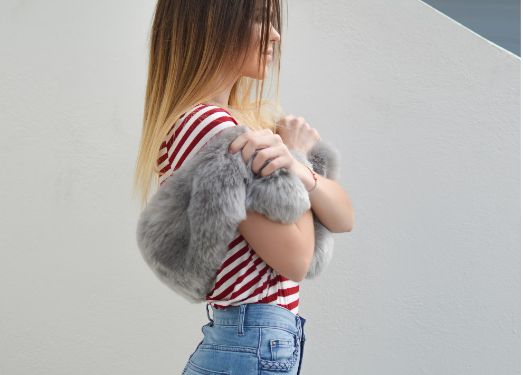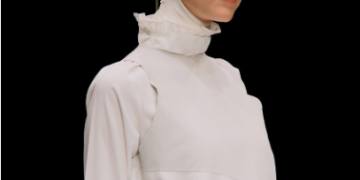Introduction to Fashion Revolution
Fashion Revolution is a global movement dedicated to transforming the fashion industry into a more ethical and sustainable one. It emerged in response to the Rana Plaza tragedy in Bangladesh in 2013, which highlighted the harsh realities of unethical practices in the fashion supply chain. Since then, Fashion Revolution has been advocating for transparency, sustainability, and fair labor practices in the industry.
Understanding Ethical Fashion
Ethical fashion encompasses practices that prioritize social and environmental responsibility throughout the entire production process. This includes fair wages for workers, safe working conditions, sustainable sourcing of materials, and minimizing environmental impact. Unethical practices, such as exploitation of workers and environmental degradation, have long plagued the fashion industry, leading to negative consequences for both people and the planet.
The Role of Consumers
Consumers play a pivotal role in driving ethical change in the fashion industry. By making conscious purchasing decisions and demanding transparency from brands, consumers can influence industry practices and promote positive change. The power lies in the choices consumers make every day, from where they shop to the products they buy.
Demand for Transparency
Transparency is essential for holding brands accountable for their actions and ensuring ethical practices throughout the supply chain. Consumers are increasingly demanding transparency from brands, wanting to know where and how their clothes are made. By supporting brands that are open and transparent about their sourcing and production processes, consumers can encourage ethical behavior within the industry.
Supporting Ethical Brands
One way consumers can drive ethical change is by supporting brands that prioritize ethical and sustainable practices. This involves researching brands, reading labels, and choosing to purchase from companies that align with their values. There are also consumer-led initiatives and certifications, such as Fair Trade and B Corp, that help identify ethical brands and products.
Educating Consumers
Education is key to empowering consumers to make informed choices about their fashion purchases. By raising awareness about ethical fashion issues, such as labor rights violations and environmental pollution, consumers can better understand the impact of their consumption habits. Fashion Revolution provides resources and campaigns to educate consumers and encourage them to demand change.
Choosing Quality Over Quantity
The rise of fast fashion has led to a culture of overconsumption and disposable clothing, contributing to environmental degradation and poor working conditions. Consumers can combat this by opting for quality over quantity, investing in timeless pieces that are ethically made and built to last. By shifting towards conscious consumption, consumers can reduce their environmental footprint and support sustainable fashion practices.
Advocacy and Activism
Consumer activism plays a crucial role in driving ethical change in the fashion industry. By participating in advocacy campaigns, signing petitions, and supporting organizations that advocate for ethical fashion, consumers can amplify their voices and influence industry policies and practices. Together, consumers have the power to hold brands accountable and demand meaningful change.
Collaborating for Change
Achieving lasting change in the fashion industry requires collaboration between consumers, brands, policymakers, and other stakeholders. By working together towards common goals, such as improving labor standards and reducing environmental impact, we can create a more sustainable and ethical fashion ecosystem. Collective action is essential for driving systemic change and building a brighter future for fashion.
Measuring Impact
Measuring the impact of consumer actions is essential for evaluating progress and identifying areas for improvement. Metrics such as carbon emissions, water usage, and worker well-being can help track the effectiveness of consumer-driven initiatives and hold brands accountable for their commitments. By monitoring progress and sharing results, consumers can demonstrate the impact of their choices and inspire others to join the movement.
Challenges and Opportunities
While consumer-driven ethical change has made significant strides in recent years, there are still challenges to overcome. These include greenwashing, where brands falsely claim to be ethical, and the need for greater inclusivity and diversity within the ethical fashion movement. However, these challenges also present opportunities for innovation and improvement, as consumers continue to demand greater transparency and accountability from brands.
Case Studies of Success
Numerous consumer-led initiatives and campaigns have successfully driven ethical change in the fashion industry. For example, the Detox My Fashion campaign led by Greenpeace pressured brands to eliminate hazardous chemicals from their supply chains. Similarly, the #whomademyclothes campaign initiated by Fashion Revolution has sparked conversations about supply chain transparency and accountability. These success stories demonstrate the power of consumer activism in driving positive change.
Future of Ethical Fashion
The future of the fashion industry lies in ethical and sustainable practices. As consumer awareness grows and demand for transparency increases, brands will be compelled to prioritize ethical considerations in their operations. Technological innovations, such as blockchain and traceability solutions, will further enhance transparency and accountability throughout the supply chain. By continuing to advocate for change and support ethical brands, consumers can drive the fashion industry towards a more sustainable and ethical future.
Conclusion
In conclusion, consumers have the power to drive ethical change in the fashion industry. By making informed choices, supporting ethical brands, advocating for transparency, and collaborating for change, consumers can influence industry practices and promote a more sustainable and ethical fashion ecosystem. Fashion Revolution provides a platform for consumers to engage in activism and demand accountability from brands. Together, we can create a fashion industry that respects people and the planet.

FAQs:
- What is Fashion Revolution?
- Fashion Revolution is a global movement advocating for transparency, sustainability, and fair labor practices in the fashion industry. It was founded in response to the Rana Plaza tragedy in Bangladesh in 2013.
- How can consumers drive ethical change in the fashion industry?
- Consumers can drive ethical change by making conscious purchasing decisions, supporting ethical brands, demanding transparency from companies, and participating in advocacy campaigns and initiatives.
- Why is transparency important in the fashion industry?
- Transparency is important for holding brands accountable for their actions and ensuring ethical practices throughout the supply chain. It allows consumers to make informed choices about the products they buy and encourages brands to improve their social and environmental performance.
- What are some examples of successful consumer-led initiatives in the fashion industry?
- Examples of successful consumer-led initiatives include the Detox My Fashion campaign led by Greenpeace and the #whomademyclothes campaign initiated by Fashion Revolution. These campaigns have raised awareness about supply chain issues and pressured brands to take action.
- What is the future of ethical fashion?
- The future of ethical fashion lies in greater transparency, sustainability, and accountability throughout the supply chain. As consumer awareness grows and demand for ethical products increases, brands will be compelled to adopt more responsible practices. Technological innovations will also play a key role in enhancing transparency and traceability in the industry.













